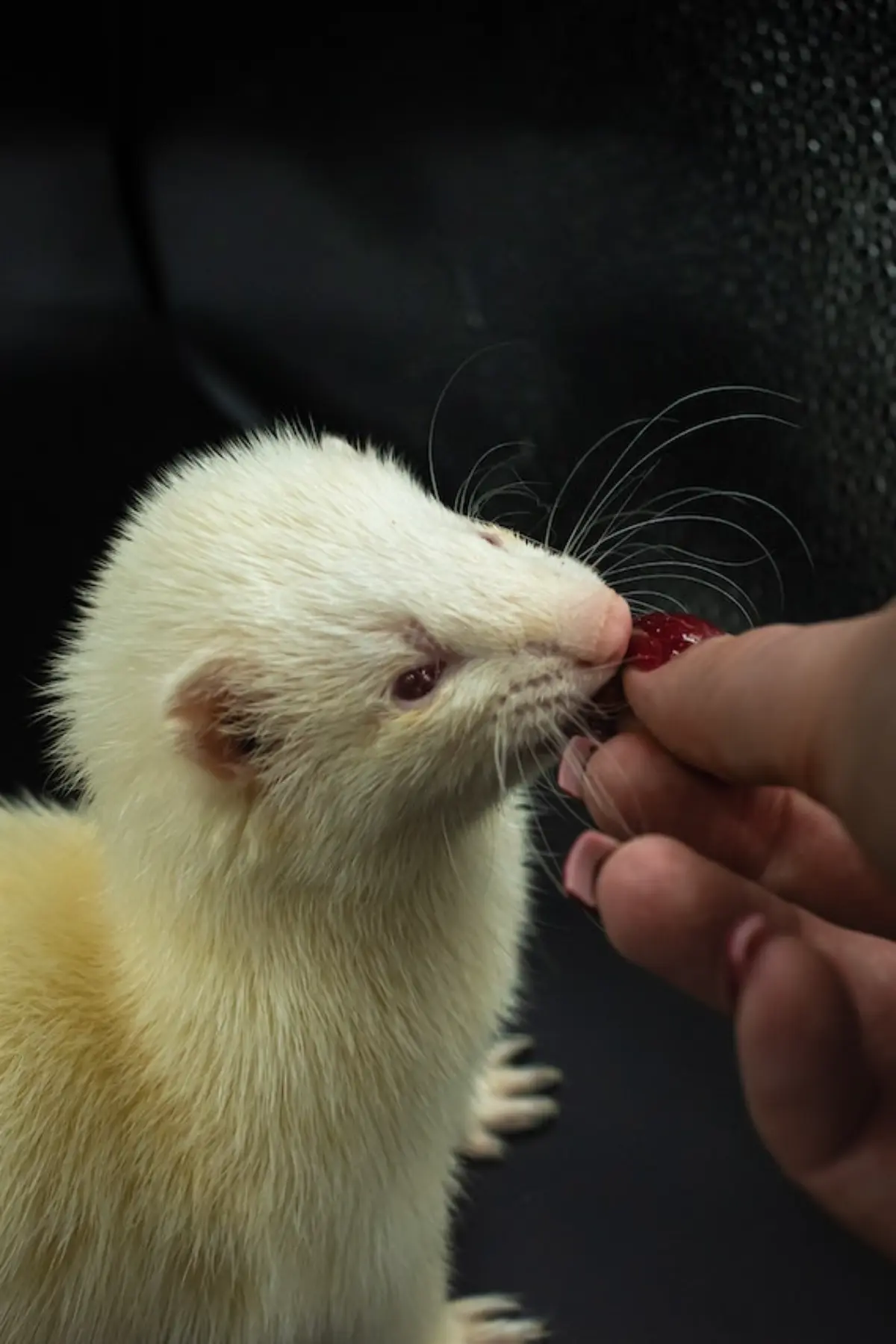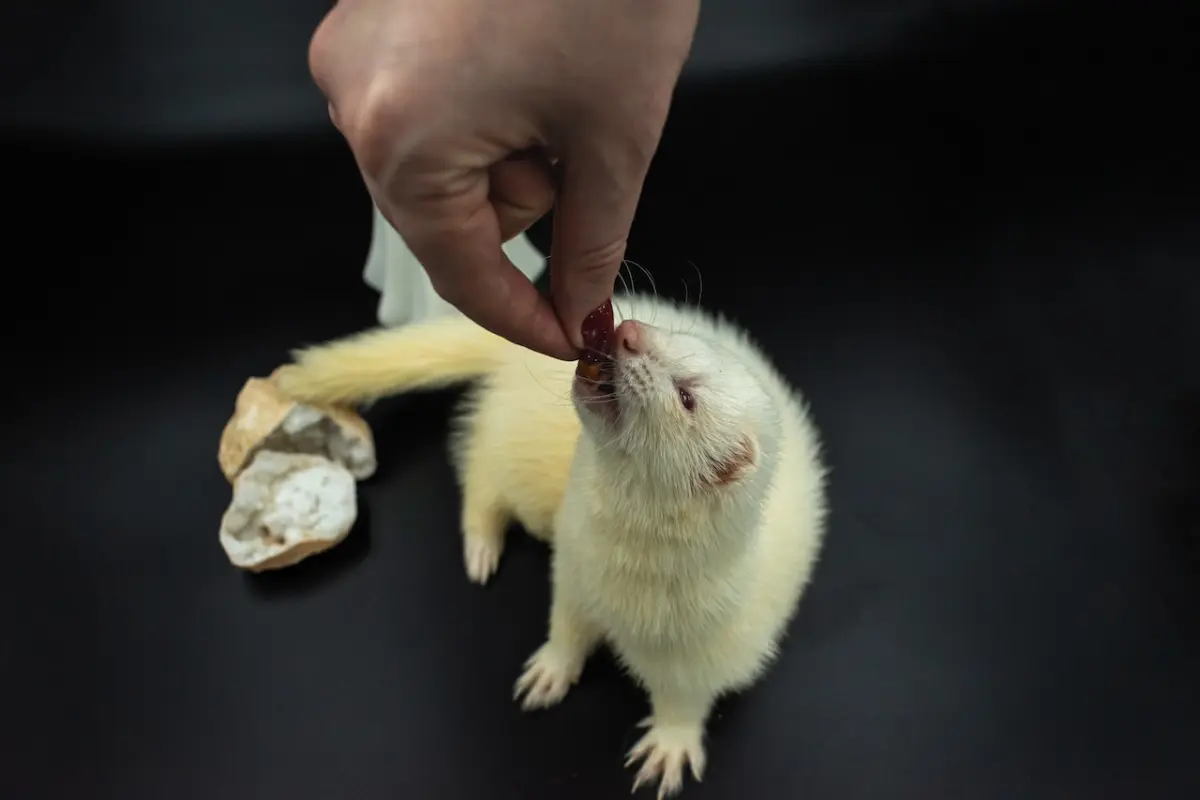Ferret care is one of the things to take into consideration before embarking on them. They make excellent pets for those willing to invest time and effort into their care. However, these animals require a lot of attention from humans in order to stay happy and healthy.
In this guide, we’ll cover the unique needs and characteristics of ferrets, including their diet, housing, grooming habits, and health concerns.

Understanding Ferret
Before diving into ferret care, it’s essential to understand their unique traits and needs. Ferrets are members of the Mustelidae family, which includes weasels, otters, and minks. They are carnivorous animals with high energy levels and require a specialized diet and ample exercise. Ferrets are also social creatures that thrive in the company of other ferrets or attentive human companions.
Housing Your Ferret
Ferrets require a spacious, secure, and well-ventilated enclosure to serve as their home base. Here are some tips for setting up the perfect ferret habitat:
- Choose a multi-level cage: Ferrets love to climb and explore, so a multi-level cage with ramps and platforms is ideal. The cage should be at least 24 inches wide, 24 inches deep, and 18 inches high.
- Provide a comfortable sleeping area: Ferrets enjoy sleeping in cozy, enclosed spaces. Provide a hammock, sleep sack, or nesting box lined with soft bedding, such as fleece or old t-shirts.
- Offer a litter box: Ferrets can be litter trained, making cleanup easier. Place a small litter box in a corner of the cage and fill it with non-toxic, dust-free litter.
- Include food and water dishes: Provide heavy ceramic or stainless-steel dishes for food and water to prevent tipping. A water bottle with a sipper tube can also be used for hydration.
- Clean the cage regularly: Clean the cage at least once a week, removing soiled bedding and wiping down surfaces with a pet-safe cleaner.
Feeding Your Ferret
Ferrets are obligate carnivores, meaning they require a diet high in animal protein and fat. Here’s how to meet your ferret’s dietary needs:
- Choose a high-quality ferret food: Select a commercial ferret food with at least 30-40% protein and 15-20% fat. Avoid foods with high levels of carbohydrates or plant-based ingredients.
- Offer fresh meat: Supplement your ferret’s diet with small amounts of raw or cooked meat, such as chicken, turkey, or beef. Avoid processed meats and fatty cuts.
- Provide fresh water: Ensure your ferret has access to clean, fresh water at all times. Change the water daily and clean the dish or water bottle regularly.

Grooming and Hygiene
Regular grooming is essential for maintaining your ferret’s health and minimizing odor. Follow these grooming guidelines:
- Bathe your ferret: Bathe your ferret every 1-3 months with a ferret-safe shampoo to reduce odor and maintain coat health.
- Brush their coat: Brush your ferret’s coat weekly with a soft-bristle brush to remove loose hair and distribute natural oils.
- Trim their nails: Trim your ferret’s nails every 2-4 weeks using small animal nail clippers.
- Clean their ears: Clean your ferret’s ears every 2-4 weeks with a ferret-safe ear cleaner.
- Brush their teeth: Brush your ferret’s teeth weekly with a pet-safe toothpaste and a small, soft-bristle toothbrush.
Socialization and Enrichment
Ferrets are social animals that require mental stimulation and physical exercise. Here’s how to keep your ferret happy and engaged:
- Provide daily playtime: Allow your ferret at least 2-4 hours of supervised playtime outside of their cage daily. This helps prevent boredom and promotes physical fitness.
- Offer toys and activities: Provide a variety of toys, such as tunnels, balls, and chew toys, to keep your ferret entertained. Rotate toys regularly to maintain interest.
- Interact with your ferret: Spend time playing with, handling, and cuddling your ferret to build a strong bond and meet their social needs.
- Consider a companion: If possible, consider adopting a second ferret to provide companionship and social interaction.
Health and Veterinary Care
Regular veterinary care is crucial for maintaining your ferret’s health. Here are some essential health care tips:
- Find a ferret-savvy veterinarian: Locate a veterinarian experienced in treating ferrets, as they have unique health needs compared to other pets.
- Schedule annual check-ups: Bring your ferret for annual wellness exams, including vaccinations and parasite prevention.
- Monitor your ferret’s health: Keep an eye on your ferret’s behavior, appetite, and energy levels. If you notice any changes or signs of illness, consult your veterinarian promptly.
Ferret-proofing Your Home
Ferrets are curious and notorious for getting into small spaces. To ensure their safety during playtime, follow these ferret-proofing tips:
- Block off small spaces: Close gaps behind furniture, appliances, and cabinets to prevent your ferret from getting stuck or injured.
- Secure electrical cords: Keep cords out of reach or use cord protectors to prevent chewing and electrocution.
- Remove toxic items: Ensure chemicals, medications, and poisonous plants are out of your ferret’s reach.
- Supervise playtime: Always keep an eye on your ferret while they explore to prevent accidents and injuries.
Conclusion
Caring for a ferret requires dedication, patience, and attention to their unique needs. By following this comprehensive guide, you can provide a healthy, happy, and enriching life for your furry companion. Remember, ferrets are social animals that thrive with consistent interaction and care. With proper attention to their diet, housing, grooming, socialization, and health, you’ll be rewarded with a loving and entertaining pet for years to come.
